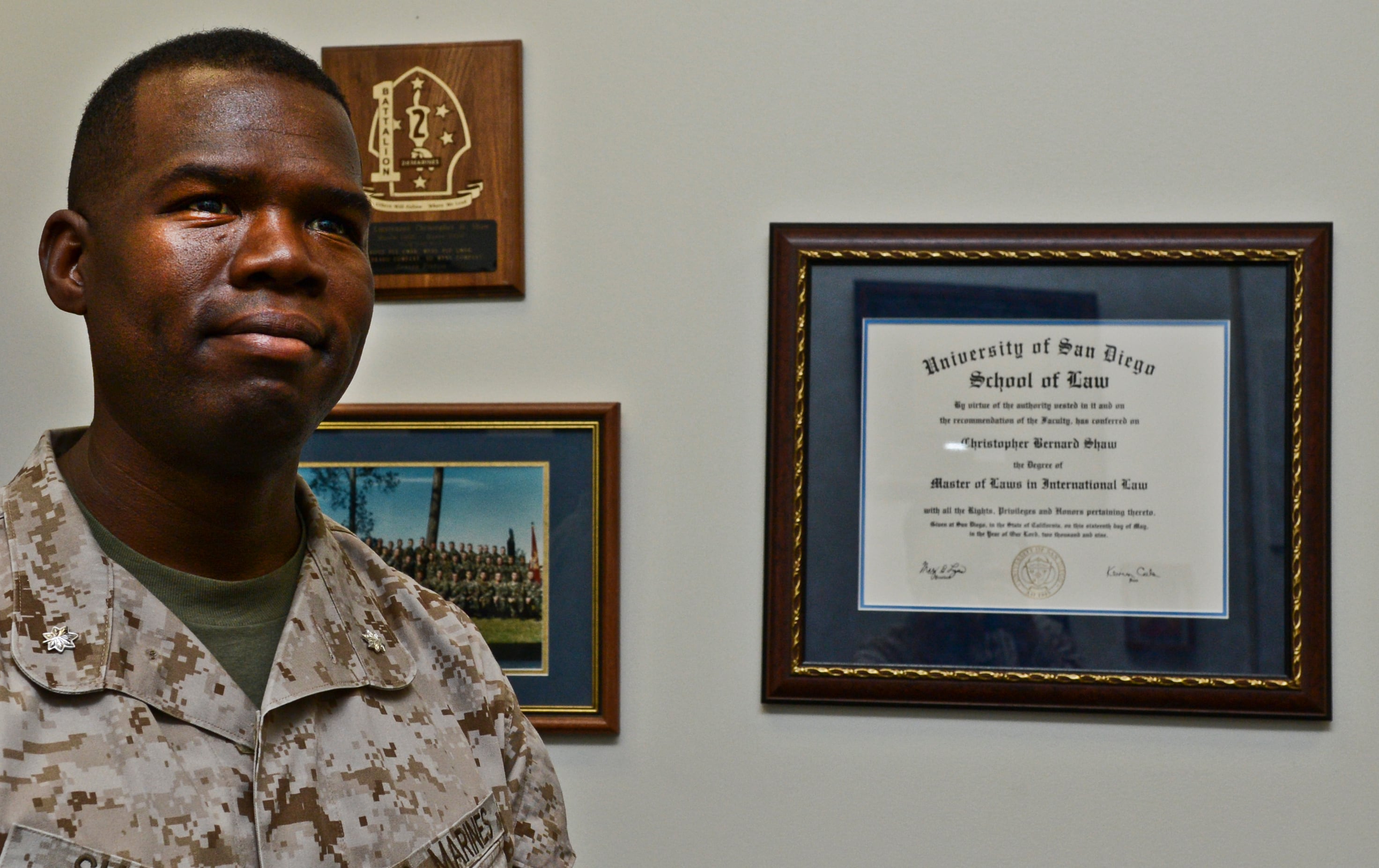A Navy corpsman again faces homicide-related charges, which had been dismissed, after a military appeals court panel overturned the previous ruling of a lower court judge.
Hospital Corpsman Chief Petty Officer Eric Gilmet could again face a trial on charges of involuntary manslaughter, obstruction of justice and negligent homicide along with two Marine Raiders in the death of retired Green Beret and defense contractor Rich Rodriguez following a brief fight outside of a nightclub in Irbil, Iraq, on Jan. 1, 2019.
Charged along with Gilmet are Marine Gunnery Sgts. Daniel Draher and Joshua Negron, who also had requested charges be dismissed after a top Marine lawyer made what multiple sworn statements from other military attorneys deemed “threatening” statements to Gilmet’s defense counsel in November 2021.
Gilmet’s civilian counsel, retired Marine Lt. Col. Colby Vokey, told Marine Corps Times on August 15 that he had spoken with his client and they were determining next steps.
“He’s incredibly disappointed and like me thinks that the opinion is wrong,” Vokey said.
RELATED

Procedurally, Vokey said, Gilmet can accept the ruling and proceed to trial, request a full appellate opinion, impaneling the entire panel for a ruling or appeal to the U.S. Court of Appeals for the Armed Forces, which is the last stop before an appeal to the U.S. Supreme Court.
The three MARSOC operators were at an off-base nightclub to celebrate New Year’s Eve 2019. Witnesses later said Rodriguez approached the three men inside of the club, saying that they were not showing him proper respect due to his Army Special Forces master sergeant status.
The argument ended, but Rodriguez waited outside the club after closing time and again confronted them.
A brief fight ensued, and Rodriguez was knocked unconscious. The three men checked on Rodriguez and transported him back to base. The checked on him at times throughout the night but he stopped breathing at one point. The three men started emergency medical procedures and then took Rodriguez to a nearby medical facility.
He was transported to Landstuhl, Germany, where he died a few days later.
Unlawful command influence claims
Gilmet was scheduled for trial on those charges in January until Marine Col. Christopher B. Shaw responded to a question from Capt. Matthew Thomas and a room of military defense counsel during a visit to Camp Lejeune, North Carolina, in November 2021.
That question was whether military defense attorneys are protected from reprisals when representing high-profile criminal defendants.
“I know your name and I know what cases you’re on and you are not protected,” Shaw had told the captain, according to multiple sworn affidavits. “You are shielded but not protected.”
After the comments, an anonymous complaint triggered an investigation into Shaw’s comments. That resulted in Shaw being removed from his then-position as deputy director of the Judge Advocate Division of the Marine Corps.

Gilmet’s military counsel, two Marine captains, were dismissed from the case, telling the military judge that they didn’t think they could proceed without fearing career-ending consequences in the high-profile case.
Shaw did not receive any further official punishment and the investigation described his comments as inappropriate but stopped short of calling the episode “unlawful command influence.”
Vokey previously called the actions egregious and the subsequent investigation, “one of the biggest whitewashes I’ve ever seen.”
Marine JAG officials could not be reached for immediate comment. Traditionally, military attorneys for both defense and prosecution decline to comment on active cases.
The retired lieutenant colonel called the appellate panel’s characterization of a Marine JAG investigation of Shaw’s conduct “disturbing.” The panel ruled that there was no unlawful command influence, in part because of actions the government took.
“(The panel) saw this as the government fixed the problem, which completely ignores the corrupted, incestuous nature of the investigation surrounding this,” Vokey told Marine Corps Times.
Marine military Judge Col. Peter D. Houtz conducted the investigation of Shaw. Vokey said that Houtz formerly worked in the same office as Shaw served.
The Marine Corps picked Houtz to investigate, relied on Shaw’s statements, which he gave and then invoked his right to remain silent to avoid questioning by the defense, Vokey said.
The appellate panel seems to have weighted Shaw’s statements, Houtz’ investigation and comments from the Marine prosecution over eight affidavits of defense attorneys who heard Shaw’s statements and accounts from senior defense counsel that Shaw’s actions had prevented him from finding replacement attorneys when Gilmet’s military attorneys were released, Vokey said.
“It is corrupt, it is dirty, it is really, really troubling,” Vokey. “It’s really, really bothersome.”
Judge Hayes C. Larsen dismissed charges against Gilmet in January. Charges against Draher and Negron remained in place, pending a dismissal request to a separate judge overseeing their case.
Government prosecutors appealed Larsen’s decision.
In July a three-judge panel from the U.S. Navy-Marine Corps Court of Criminal Appeals heard arguments from both sides. Their ruling, released August 15, overturned the dismissal.
The panel ruled that the judge had erred when dismissing the charges, primarily because he didn’t allow for the prosecution to refute claims of unlawful command influence or for the defense to find a remedy that did not involve dismissing the charges entirely.
Marine JAG officials reported that Shaw’s comments were inaccurate. They pointed out that Thomas already had been selected to an advanced, promotion track school. JAG officials also noted that by removing Shaw they had resolved any concern regarding influence over the defense attorneys in the case.
But Vokey told Marine Corps Times in July that Shaw’s comments have caused outsized impact across the Marine defense bar. He and the command have tried to find replacement counsel in the Navy or Marine Corp with no success.
“There’s a huge ripple effect. This has caused shockwaves throughout the (military legal) defense communities,” Vokey told Marine Corps times in July. “There is a huge distrust now that has resulted because of Shaw.”
But the appellate judges disagreed.
“We expect that ‘an objective, disinterested observer’ will likely find Col. (Shaw’s) comments to Capt. (Thomas) highly disturbing. They were as shocking as they were incorrect,” the judges wrote.
While shocking, the comments didn’t break the threshold of unlawful command influence or charge dismissal, the judges wrote.
The judges noted that if an “observer” were “fully informed” of the measures taken by the prosecution and JAG that it would be both unlikely and unreasonable that they would find the proceedings unfair.
Todd South has written about crime, courts, government and the military for multiple publications since 2004 and was named a 2014 Pulitzer finalist for a co-written project on witness intimidation. Todd is a Marine veteran of the Iraq War.





